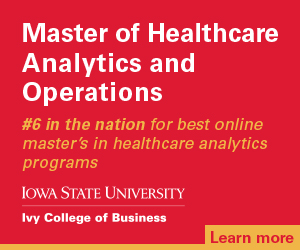DNA Today melds smart card, DNA

Having a child suddenly disappear is a parent’s worst nightmare.
With a product being offered by a West Des Moines startup company, a parent could make one call to turn over their child’s identifying information — including DNA — to law enforcement. The kits, which caught a lot of parents’ interest recently at Kidsfest, are one of several DNA-based identification products being developed by DNA Today LLC.
“Just one-tenth of 1 percent of your DNA is what makes you unique from everyone else in the world,” said Steven Whitehead, the company’s founder and majority owner. Put that information onto a smart card, and you have the basis for a unique identification system with some profitable and possibly lifesaving applications, he said.
“Basically, what we’re trying to do is apply the amazing accuracy and versatility of DNA into consumers’ lives and businesses,” Whitehead said. Though most attention in recent years has been focused on the disease-fighting potential of DNA research, his company’s ventures primarily seek to use the identifying qualities of DNA.
The company recently received a $100,000 Entrepreneurial Ventures Assistance award from the Iowa Department of Economic Development, with a provision that it will be repaid from royalties it earns on its products, “so obviously the evaluators thought the business plan would be successful,” said Tina Hoffman, an IDED spokeswoman. .
Worldwide, the smart card industry is expected to top 2 billion cards issued in 2004, said Randy Vanderhoof, executive director of the Smart Card Alliance. About 1 billion of those cards will be microprocessor smart cards, which have an embedded microchip that’s typically used for security and identification. The New Jersey-based not-for-profit organization promotes the adoption and use of the technology in North America.
DNA Today’s plans for putting DNA information onto smart cards is an approach Vanderhoof has not heard of elsewhere, he said.
“Really any information can be stored on a smart card as long as there’s enough information on the card,” Vanderhoof said. “My knowledge of DNA is that it’s pretty much fraud-proof, so that seems like it would be a pretty reliable method of identifying someone, even more so than traditional biometrics such as hand geometry, fingerprints, retinal scanning or voiceprints.”
Though there may not be a lot of DNA smart cards out there, Whitehead does face competition from other DNA-based child identification kits on the market.
“The value of what we’re offering is that we’re creating a Web site where you can keep all this information and release it at a moment’s notice,” Whitehead said. The product, called Team DNA Today, allows parents to record and update complete information on their child, including height, weight and other statistics, and store it on a secure Web site.
Among other applications DNA Today is developing is a tribal ID card system for Native Americans. It’s also negotiating to market its identification program to companies along the Pacific Rim.
The company also intends to market a DNA identification program to funeral homes, which would enable families to obtain and keep a record of a deceased loved one’s DNA information in case of later legal disputes.
Other potential clients, Whitehead said, are attorneys and physicians, who could use it to convert reams of paper records onto a single smart card for each client or patient.
With stricter requirements for patient confidentiality mandated by federal law, “the medical profession is just beginning to discover smart cards,” Vanderhoof said.
Whitehead said the DNA information, which is obtained from a buckle swab of the inside of both cheeks, does not provide any indications of a person’s health or medical conditions, and hence could not be used by insurance companies to deny someone coverage. In each case that DNA samples are taken, the samples are destroyed by the laboratory, unless the client opts for an optional safekeeping program in which a sample is kept by the company.
Whitehead launched DNA Today in April 2003, after several years of research into the technology. For 15 years, he ran his own funeral planning service, which is how he became aware of DNA technology.
DNA Today, which now has four employees, partners with Genetic Technologies, a DNA laboratory based in Glencoe, Mo., for the scientific analysis portion of the business. Its smart-card partner is Dopio Inc., a French company that is currently developing the software.
One of the company’s most promising projects lies in its contracts with 35 Indian tribes across the country to provide ID card systems for more than 300,000 enrolled tribal members. The systems will allow the tribes to coordinate several programs for their members together with one ID card. That software and smart card product, called Origins Today, will allow each tribe to opt for using DNA information as an identifier on the cards.
No Iowa tribes have yet bought the system, though it’s being discussed with the two tribes in the state, Whitehead said. The software package can be purchased outright for $10,000, or a tribe could opt to pay $295 per member to buy the DNA smart card system, which includes the software.
For the Team DNA Today product for child identification, the company will charge a $50 initial membership fee, with a $14.95 annual renewal fee.
DNA Today plans to add six to eight additional employees within the next nine months to handle the anticipated volume of business from the tribal contracts.
For now, the largest challenge for the company lies in making people comfortable with the use of the technology, Whitehead said.
“I think that once the doctors and the lawyers start using it, that it will catch on,” he said.
MORE SMART CARDS AHEAD
Smart cards usage is growing in a number of markets, said Randy Vanderhoof, executive director of the Smart Card Alliance, a not-for-profit industry group.
“The biggest growth will be in cell phones, with smart chips embedded in the phones,” he said. Cellular phone makers will increasingly adopt the international standard already being used in European companies, he said.
Secure identification badges for U.S. government employees and military members have been another hot product for the industry, he said.
“And the growth of smart cards in the financial services sector continues to increase, particularly cards that link to Web stores or for Web-based purchases.”
A bricks-and-mortar application of payment cards is now being tested in the fast-food industry. One pilot program in Orlando, Fla., called Paypass, allows the customer to pay prior to reaching the drive-up window by touching a card to a reader to process his or her credit card information.







